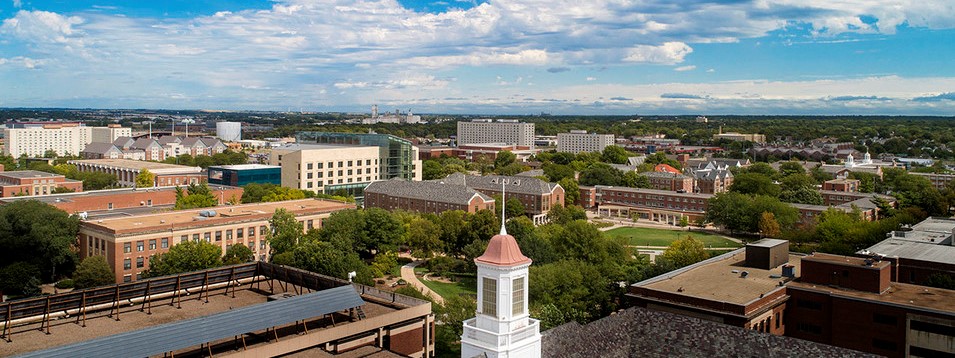Posted July 29, 2022 by Heidi Uhing
The Office of Research and Economic Development is supporting 24 research projects in 2022-23 through its Layman Awards program, which funds work that enhances a researcher’s ability to obtain external funding to support prominent scholarship.
There are two tracks: the Layman Seed Program, which funds new projects by early-career faculty who are nontenured at the time of submission, and the New Directions Program, which funds tenured faculty who are branching into new research directions or need funding to support pilot or developmental work toward the next step in a funded research program. Awards of up to $10,000 per application for each program are made possible by support from the University of Nebraska Foundation.
Layman Seed Program recipients and projects
Dena Abbott, Nebraska Center for Research on Children, Youth, Families and Schools; “Promoting women’s sexual wellness using comprehensive, rights-based adult sexuality education.”
Mona Bavarian, chemical and biomolecular engineering; “Continuous manufacturing of microelectronics polymers via combination of data science and macroscopic modeling.”
Lindsey Crawford, biochemistry, “Beta-herpesvirus (HHV-6) control of T-cell differentiation.”
Aziza Cyamani, interior design, “Impacts of a transdisciplinary approach to practice-based learning on students’ success skills.”
Irina Filina, earth and atmospheric sciences, “Structures and crustal variations of the mid-Norwegian margin from integrated geophysical analysis.”
João Carlos Gomes-Neto, food science and technology, “Population-based mining of accessory genome loci to identify cryptic genotypic units of the zoonotic pathogen Salmonella Monophasic.”
Jason Hawkins, civil and environmental engineering, “Environmental-economic systems as dynamic networks-of-networks.”
Taeyeon Kim, Nebraska Center for Research on Children, Youth, Families and Schools,
“Understanding equity in Nebraska school accountability: An exploration of school leaders’ narratives.”
Salvador Lindquist, landscape architecture, “Beyond compliance: accessibility in greenway planning and design.”
Qiang Liu, School of Computing, “Automated offline simulator augmentation with real-to-sim learning in mobile networks.”
Nitesh Nama, mechanical and materials engineering, “Bubble based acoustic microswimmers.”
Leslie Rault, entomology, “Molecular marker development for mosquito species census in pollinator gardens.”
Arman Roohi, School of Computing, “Enabling robust quantized neural network acceleration in federated edge computing.”
Brenden Timpe, economics, “Parenthood and the gender earnings gap in the United States.”
Layman New Directions Grant recipients and projects
Moe Alahmad, Durham School of Architectural Engineering and Construction, “Analysis and statistical prediction of variability in time-series data.”
Steven Comfort, School of Natural Resources, “A biological and chemical approach to restoring eutrophic ponds in Nebraska.”
Clay Cressler, School of Biological Sciences, “The role of the Daphnia microbiome in controlling harmful algal blooms in Nebraska.”
Erica DeFrain, University Libraries, “Student researchers’ online information seeking habits and mediated guidance from academic libraries.”
John DeLong, School of Biological Sciences, “Understanding the ecological implications of virology.”
Emily Kazyak, sociology, “Intergenerational support, health, and wellbeing in minority families.”
Srivatsan Kidambi, chemical and biomolecular engineering, “Synthetic biomimetic environment (BEASTS) to investigate the role of stiffness in altered redox signaling and inflammation in placenta during HDP.”
Daniel Linzell, civil and environmental engineering, “Individual-level factors that and their impact on retention of women in the construction industry.”
Etsuko Moriyama, School of Biological Sciences, “Interaction potential between non-human SARS-CoV-2 proteins and human cell proteins using co-evolution frameworks.”
Hongfeng Yu, School of Computing, “Hierarchical knowledge-driven visual analytics for oncologic diagnosis.”






